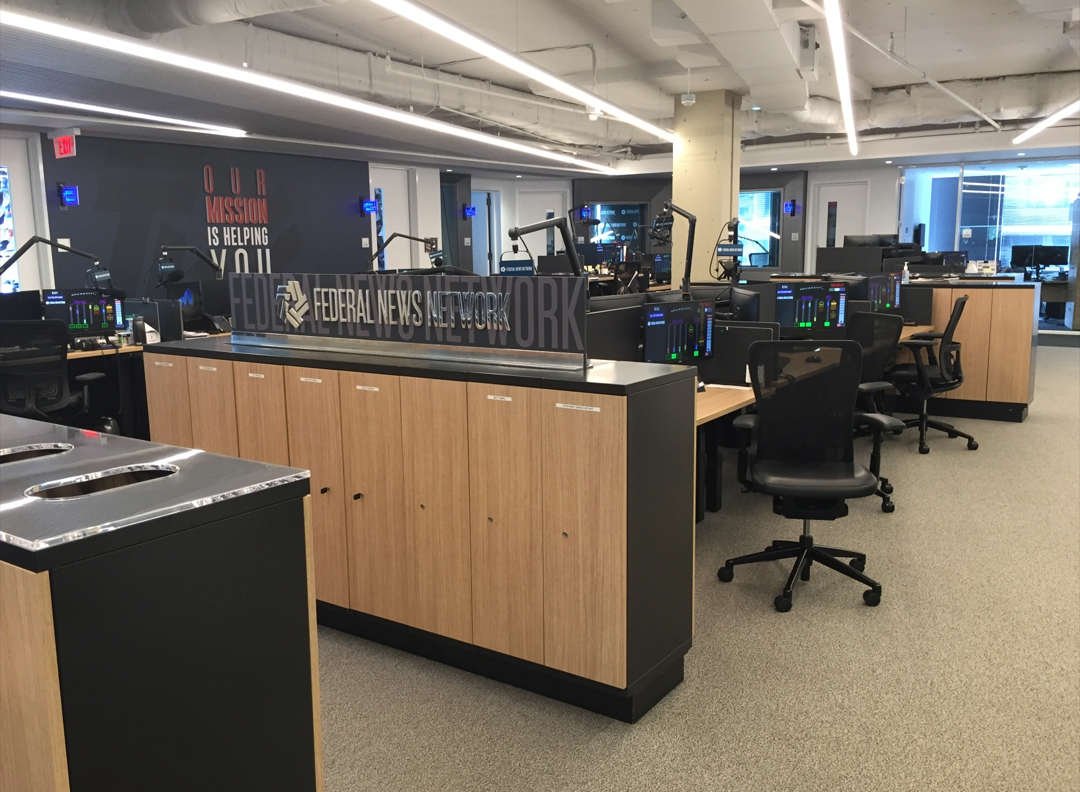

VA telehealth employee wonders why he can't telework.
Let me tell you, when you’re the only one left in the office, it’s like teleworking, only without the cat or the refrigerator. Most Federal News Network employees — actually all of them, except me — are under strong corporate encouragement to telework. I’m exempt because I need my studio facilities to get the Federal Drive recorded and edited each day.
And anyhow, if I’m the only one within 75 feet or so of myself, I might as well be teleworking. The WTOP anchors and editors are here, but they’re a former-New-England-Patriots-quarterback-Tom-Brady pass distance away. As for communicating with the other WFED staff, we’ve got email, Slack, texting, a newsroom application called Burli, and the phone.

Basically it all works but it’s not the same as being with people. I like my producers, and I haven’t seen them now in a week. And I don’t know when I will.
In the quiet of my soundproofed office, I jumped on my desk phone when it chirped early this morning. It turned out to be a reader in Houston. He works for the Veterans Affairs department. His job puts him in contact with veterans in their homes. His office is on the campus of the Houston medical center, but not in the main hospital building. He said two people on the campus have been diagnosed with the corona virus, one a veteran patient and one a visiting medical student.
“Greg” wanted to let me know that requests to telework have not been honored by local management. But here’s the irony in his particular situation. He and his colleagues can do the home examinations using video conferencing. The veterans use smart phones and the VA staff member tells them what to point it at. Although an in-home look-see can reveal many more subtleties than a remote one, the licensing apparatus for his profession allows for teletherapy, and there’s a protocol for making sure the necessary observations occur.
Plus, Greg said, the VA has imposed what he called “standards” for how many of these inspections are done remotely, with the quotas gradually rising. Given that he has a fully-equipped notebook PC and remote access to the required agency applications, Greg wonders what the heck is the difference where he works. Now, he said, he’s forced to come to the office … for the purpose of teleworking.
I don’t imagine too many sick or disabled veterans, who might be immuno-compromised already, would care for in-home visits by people arriving from giant hospital campuses.
In a few days Spring will arrive. It looks like the telework ban is starting to thaw. In the latest moves, the Education Department has told people to telework if they can and want. Ditto for the Justice Department. The EEOC and Social Security, agencies that conduct in-person meetings with the public, have suspended them.
Many people must work on location. People doing classified work, for example. Or those working in laboratories with special equipment. Law enforcement. Attending medical staff. Presumably they’ll take all the precautions and avoid getting too close. They’ll be operating often without support staff.
People teleworking might feel isolated. Or frustrated if there’s some document or application they can’t get to. It’s not easy for anyone, whether you’re in the office or teleworking — especially people with kids moping around the house because schools are closed.
Agency managers need to start trusting their people a little more. Employees want to do the right thing with respect to coronavirus. And they want to get their jobs done. Is it so hard to figure out?
Copyright © 2024 Federal News Network. All rights reserved. This website is not intended for users located within the European Economic Area.
Tom Temin is host of the Federal Drive and has been providing insight on federal technology and management issues for more than 30 years.
Follow @tteminWFED

